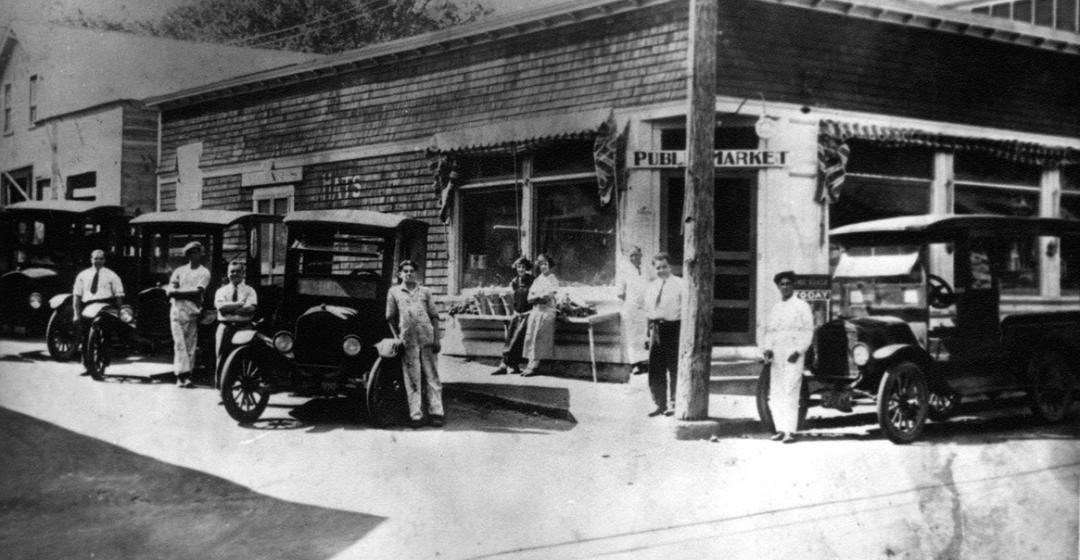He wasn’t the first of his faith to set foot on Martha’s Vineyard. There were Jews in New England from the earliest days of European colonization, and doubtless a Jewish sailor or two had stepped ashore in Edgartown or in Vineyard Haven over the centuries. Almost certainly as well, there were some early Jewish summer visitors to the Island. It wasn’t until 1905, however, that the first Jewish settler arrived to make a permanent home on the Island. He was Samuel Krengle, an eighteen-year-old Lithuanian immigrant. Except he didn’t go by that name, using instead the mangled version given to him at Ellis Island: Samuel Cronig.
The son of a tenant farmer in Lithuania – then a part of Tsar Nicholas II’s Russia – Krengle grew up helping his father by marketing milk in the capital city of Vilna (now Vilnius) and selling vegetables in neighboring Poland and Germany. It wasn’t long before he obtained a smattering of both the Polish and German languages, an achievement that convinced his parents to send him to Minsk, in Belarus, to live with his relatives and study for a future as a rabbi. Once there, he did not find himself enamored of his rabbinical studies. His beautiful cousin Libby Levine, on the other hand, was a different story.
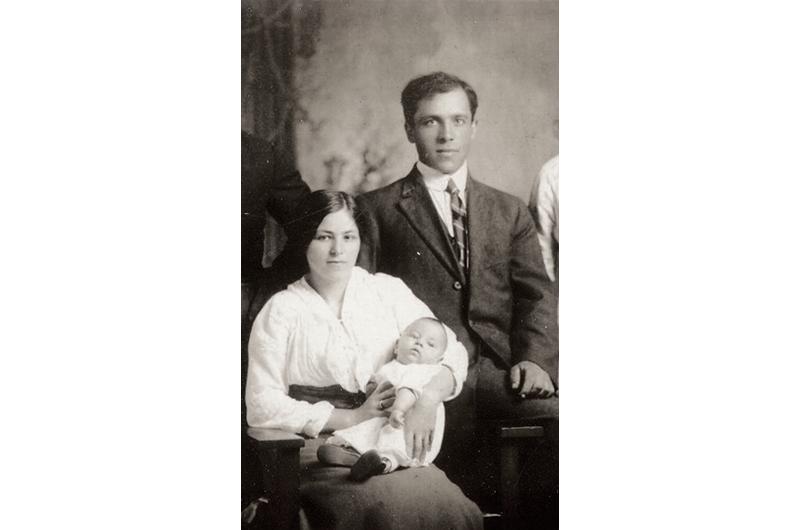
He and Libby fell in love. But with rumors of war in the air and the prospect of being drafted into the tsar’s army looming, Krengle decided a life in the New World sounded more promising than staying in Russia. He assured Libby that he would send for her as soon as he could afford to do so, and returned to Lithuania to raise money for a ticket to America. Any qualms he may have had about the plan evaporated the night a Cossack soldier whipped him for the crime of returning home after curfew from his night job as a baker. The curfew was meant to keep Jews at home after dark.
With little more than enough money for his passage, he boarded a ship for New York, passed through Ellis Island, and found work as a night watchman in a Brooklyn screwdriver factory. It was decent enough work for a newcomer, but the big city was not to his liking and he made his way to New Bedford, where he had cousins. From there, a newspaper advertisement brought him to the Vineyard for a summer job as a farmhand on retired sea captain Hiram Daggett’s place in the Eastville section of Oak Bluffs.
The kindly Daggetts loved the ambitious young immigrant, and even offered to adopt him. But Krengle – now Cronig – explained that he still had his own parents in Vilna, and still had his own religion. (They had been taking him to their Baptist church.) Grateful as he was for his job, and for the English the Daggetts were teaching him, he preferred not to be adopted.
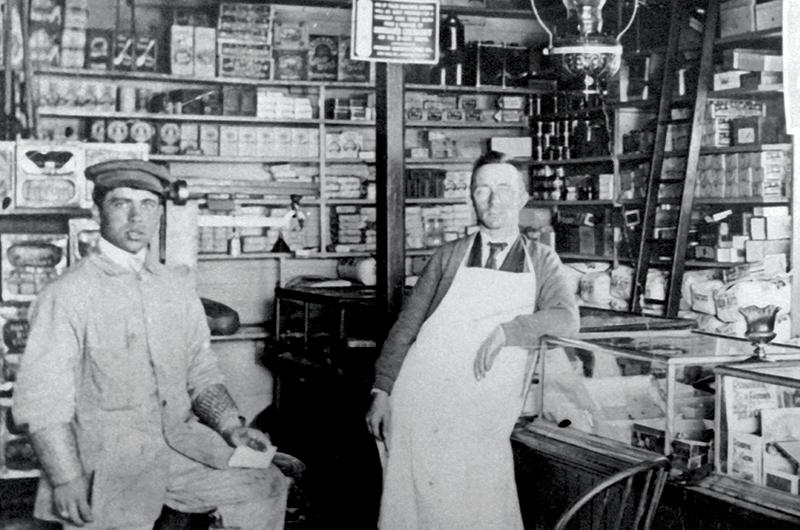
By the time fall came and his farming stint ended, Cronig knew he wanted to stay on the Vineyard. He found a job with Look, Washburn & Co., the Vineyard Haven grocers that later became Smith, Bodfish & Swift (SBS), delivering goods all over the Island with a horse and wagon. It was work not too dissimilar from what he had been doing back in Lithuania, and within five years he saved enough to send for his brother, Edward, who became an apprentice carpenter on the Island.
A year later, he finally felt secure enough financially to send for Libby, and in 1913 they were married. Before long two more Cronig brothers, Theodore (Tebby) and Henry, and their thirteen-year-old sister, Tilly, had also come across the Atlantic. That meant there were now five Cronigs in America with a Lithuanian farming background. They put their resources together and bought a farm in Acushnet, on the mainland. Not long after their purchase, however, fire destroyed their barn and all the cattle in it, and the Cronig brothers moved back to the Vineyard. It was a devastating turn of events, but Libby, for one, was pleased at the move.
“She never liked Acushnet the slightest bit,” remembered Sam and Libby’s daughter, Ruth Cronig Stiller, who died in July of 2016. “The nearest family was five miles away. In contrast, in Vineyard Haven, there were neighbors!”
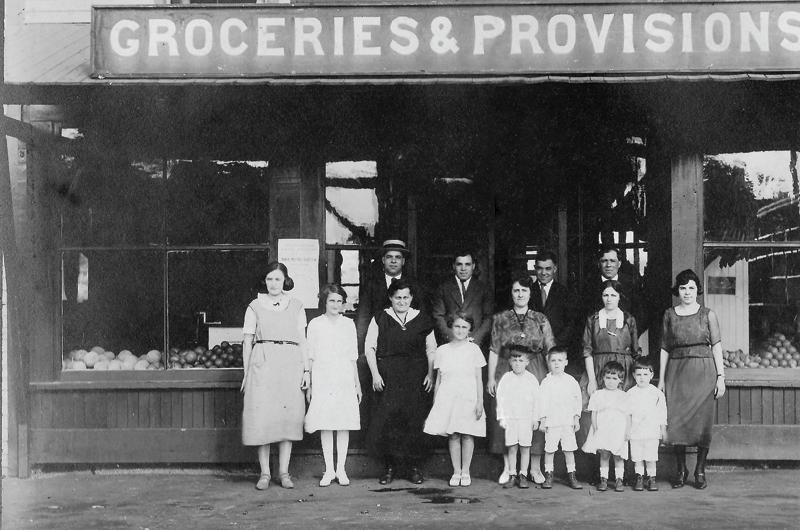
What’s more, by then some of their Island neighbors were also Jewish. Eight years after Sam Cronig had first come to the Vineyard, Judal and Eudice (Issokson) Brickman arrived with their three children. Like Cronig, the Brickmans were Lithuanian-born and dreamed of making a new life in the United States. In 1911, when Judal was twenty-six, he arranged passage in steerage to New York and, like most Jewish immigrants of that era, found factory work on the Lower East Side. But when a relative in Boston told him he had heard that on the island of Martha’s Vineyard there was a cobbler trying to sell his shop, young Brickman, who was a shoemaker, jumped at the opportunity and moved his family to Vineyard Haven.
They found an apartment on Main Street, and Judal repaired shoes in the space downstairs, which is now Mosher Photo. Soon enough, the cobbler shop had grown into a shoe store and moved to the location of today’s Brickman’s, which is still owned by the family. Like the Cronigs, the Brickmans were followed to the Island by other relatives, both Brickmans and Issoksons.
Also in 1911, Benjamin and Bessie Hall bought a needle and thread shop on Main Street in Edgartown and established Hall’s Department Store. Benjamin was born in Kiev, Russia, in 1866, and family legend has it that his father, Joseph Holshanetsky, was a tutor in the court of Tsar Alexander II who lost his post when he refused to convert to Russian Orthodoxy. That event may have helped convince Benjamin, at twenty-one, to emigrate. In 1887 he sailed to Boston, changed his name to Hall, and two years later married Bessie Stern, whom he met there. The couple spent some years in the department store business in New Bedford before moving to Edgartown, where they bought the former Captain John Baylies house on South Summer Street and raised their five sons and one daughter.
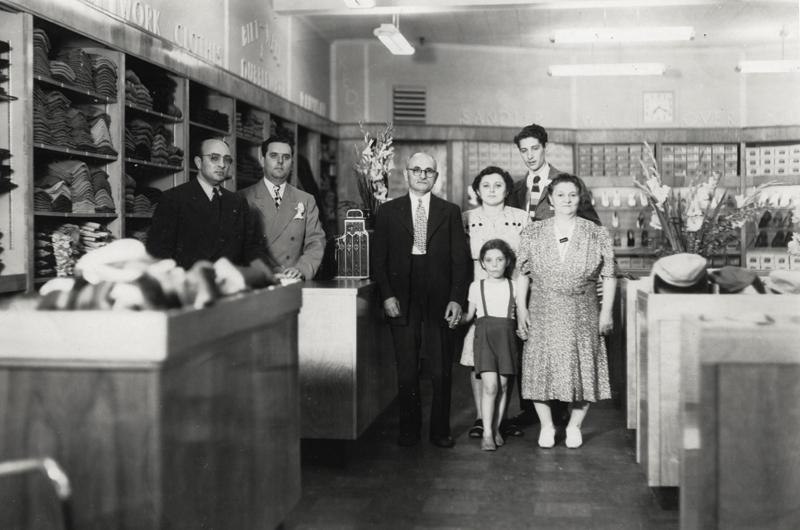
By the time the Cronig brothers returned to the Vineyard from their ill-fated farming business in Acushnet, therefore, there was the nucleus of a Jewish community on the Island. Judal Brickman even became the godfather to two of Sam Cronig’s sons.
In 1917 the four brothers opened the Cronig Brothers Market on Vineyard Haven’s Main Street. (Henry would also become a successful real estate broker who eventually donated the land for the Martha’s Vineyard Hebrew Cemetery in Vineyard Haven and played an important role in the purchase of the property for the Hebrew Center.) The Cronig brothers’ grocery store did so well that for two summers they owned the Highland Market, which is now Our Market, in Oak Bluffs and a third market behind The Arcade, now Sharky’s Cantina. A fourth market in New Bedford also did well, but the brothers eventually decided to concentrate their efforts on Vineyard Haven.
By 1956 Sam was ready to retire and handed over the reins of the Main Street store to his sons, David and Robert. The pair would expand the business several times, including setting up shop at the current Cronig’s location on State Road, while also maintaining the Main Street store. In 1980, David, who is still alive today at 103, left the business and sold the Main Street location.
Robert, who died in 2008, continued the operation of the State Road store until 1986, when he sold it to Steven Bernier. But the family legacy lives on. Today, with a vibrant community of Jewish seasonal and year-round Islanders, and a thriving Hebrew Center, it’s hard to imagine that it all began in the decade before the outbreak of the First World War with the arrival of an ambitious teenager from Lithuania.
In 1959, when Sam died, editor Henry Beetle Hough wrote in the Vineyard Gazette that “the life of Samuel Cronig is certain to be an inspiration to future generations on the Vineyard…It is unlikely that anyone ever triumphed more completely over the handicaps that confront a stranger of foreign birth who comes to a small town…Seldom has a man of whatever background or calling enjoyed such respect and genuine friendship.”

